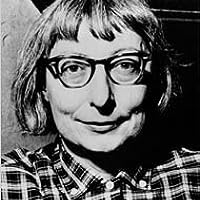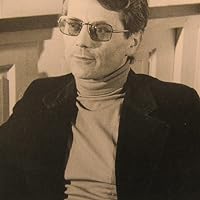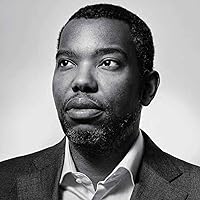Pedestrians Quotes
Quotes tagged as "pedestrians"
Showing 1-11 of 11

“There is no logic that can be superimposed on the city; people make it, and it is to them, not buildings, that we must fit our plans.”
―
―

“I stop dead in my tracks. Someone behind me walks into me and swears (stopping abruptly in central London is a heinous crime, and immediately gives the people around you permission to kick you).”
― The Flatshare
― The Flatshare

“Their story begins on ground level, with footsteps. They are myriad, but do not compose a series. They cannot be counted because each unit has a qualitative character: a style of tactile apprehension and kinesthetic appropriation. Their swarming mass is an innumerable collection of singularities. Their intertwined paths give their shape to spaces. They weave places together. In that respect, pedestrian movements form one of these 'real systems whose existence in fact makes up the city.' They are not localized; it is rather they that spatialize. They are no more inserted within a container than those Chinese character speakers sketch out on their hands with their fingertips.”
― The Practice of Everyday Life
― The Practice of Everyday Life

“If you are a pedestrian, you are not mechanical enough to be of priority to traffic engineers.”
― Dystopia: How The Tyranny of Specialists Fragment African Cities
― Dystopia: How The Tyranny of Specialists Fragment African Cities

“The contempt of motorists for pedestrians is so ironic, because no matter how many cars they have, they are also pedestrians, biologically. Unless they fly to the doors of their cars.”
― Dystopia: How The Tyranny of Specialists Fragment African Cities
― Dystopia: How The Tyranny of Specialists Fragment African Cities

“Pedestrianism, [William Bingley] claims, is the most 'useful' mode of travel, 'if health and strength are not wanting.'
'To a naturalist, it is evidently so; since, by this means, he is enabled to examine the country as he goes along; and when he sees occasion, he can also strike out of the road, amongst the mountains or morasses, in a manner completely independent of all those obstacles that inevitably attend the bringing of carriages or horses.'
Bingley has a specific reason here for valuing the combination of freedom and intimacy with one's surroundings enjoyed by the pedestrian, but his rationale is generalisable to other travellers.”
― Romantic Writing and Pedestrian Travel
'To a naturalist, it is evidently so; since, by this means, he is enabled to examine the country as he goes along; and when he sees occasion, he can also strike out of the road, amongst the mountains or morasses, in a manner completely independent of all those obstacles that inevitably attend the bringing of carriages or horses.'
Bingley has a specific reason here for valuing the combination of freedom and intimacy with one's surroundings enjoyed by the pedestrian, but his rationale is generalisable to other travellers.”
― Romantic Writing and Pedestrian Travel

“It is the flight from us that sent them sprawling into the subdivided woods. And the method of transport through these new subdivisions, across the sprawl, is the automobile, the noose around the neck of the Earth, and ultimately, the Dreamers themselves.”
― Between the World and Me
― Between the World and Me

“...moderate social deviance or class non-conformism I have imputed to the first generation of pedestrians. Improved roads, after all, were one of the principal means by which the country was building a national communications network that would underpin the huge commercial and industrial expansion of the nineteenth century; changing the landscape of the country to produce the arterial interconnection of the modern state in place of a geography of more or less self-enclosed local communities; consolidating the administrative structures of the state and facilitating political hegemony over a rapidly growing and potentially unstable population; and promulgating a 'national' culture in the face of regional diversity and independence. With the main roads such powerful instruments of change, the walker's decision to exploit his freedom to resist the imperative of destination and explore instead by lanes, by-roads and fieldpaths, could well be interpreted as an act of denial, flight or dissent vis-a-vis the forces that were ineradicably transforming British society.”
― Romantic Writing and Pedestrian Travel
― Romantic Writing and Pedestrian Travel

“There are no roads in British Columbia. There are only corners joined together. And nowhere is this truer than in Vancouver. In this city, pedestrians, even those within clearly marked crosswalks -- especially those within clearly marked crosswalks -- are viewed not as nuisances to be avoided but as obstacles to be overcome. Rising to the challenge, Vancouver drivers will attempt to weave through these pedestrians without knocking any over -- and, here's the fun part, without ever applying the brakes. Swoosh, swoosh: downtown slalom. Pedestrians, in turn, try to keep things interesting by crisscrossing the streets at random, like neutrons in a particle accelerator. They cross the street like this because, being from Vancouver, they naturally have a sense of entitlement. Either that or they're stoned.”
―
―

“He hated walking. It was the most excruciating activity in his day; that was, because of the screaming. You see, passing strangers on a walk is terribly painful for people like Andrei, whose every muscle fights to pretend their mind is not yelling questions like: “DO YOU GO LEFT?! OR DO I? Do I know you? Are you looking at me? Do I look familiar to you? Look down! Peruse the floor, scan left now right. Where are your headphones? It would have been so much easier to look busy if you had just remembered to bring your headphones! They’re coming closer. Don’t look at them. Rub your eyes. Sniffle. Good. Good...We made it. OH GOD ANOTHER ONE.”
― A Happy Ghost
― A Happy Ghost
“Pedestrians have the right-of-way in all cases, but that is little comfort if you get run over.”
― A Florida State of Mind: An Unnatural History of Our Weirdest State
― A Florida State of Mind: An Unnatural History of Our Weirdest State
All Quotes
|
My Quotes
|
Add A Quote
Browse By Tag
- Love Quotes 97.5k
- Life Quotes 76k
- Inspirational Quotes 73k
- Humor Quotes 44k
- Philosophy Quotes 29.5k
- Inspirational Quotes Quotes 27k
- God Quotes 26k
- Truth Quotes 23.5k
- Wisdom Quotes 23.5k
- Romance Quotes 23k
- Poetry Quotes 22k
- Death Quotes 20k
- Happiness Quotes 18.5k
- Life Lessons Quotes 18.5k
- Hope Quotes 18k
- Faith Quotes 18k
- Quotes Quotes 16.5k
- Inspiration Quotes 16.5k
- Spirituality Quotes 15k
- Religion Quotes 15k
- Motivational Quotes 15k
- Writing Quotes 15k
- Relationships Quotes 14.5k
- Life Quotes Quotes 14k
- Love Quotes Quotes 14k
- Success Quotes 13.5k
- Time Quotes 12.5k
- Motivation Quotes 12k
- Science Quotes 11.5k
- Motivational Quotes Quotes 11.5k

